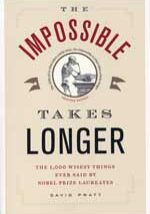In 701 B.C. the Assyrian empire was in its ascendancy. It had already vanquished the kingdom of Israel to the north including the capital at Samaria. It then prepared an assault on Judah and its capital at Jerusalem.
But in one of those significant events that changes the course of world history, Assyria was repelled. Jerusalem was saved until 586 B.C. when the Babylonians sacked the city, forcing its leadership class into exile.
Henry Aubin, in a major feat of scholarship, determines that Jerusalem was aided by a Kushite army from Africa which had marched northeast from the Nile valley. While the Bible attributes the Assyrian retreat to an angel and secular commentators cite pestilence, Aubin, in a meticulously documented work, demonstrates that an alliance with the African nation of Kush bolstered Jerusalem’s defences.
Kush, also known as Nubia, was located in what is now southern Egypt and northern Sudan. A monarchy that existed for more than 1000 years, from 900 B.C. to A.D. 350, Kushites held sway over Egypt from 712 B.C. to about 660 B.C. Of Egypt’s 31 dynasties, this, the 25th Dynasty, is the only one that all scholars agree, was black.
The commander of the Kushite expeditionary force was Taharqa (or as the Bible calls him Tirhakah). This Kushite prince, who had his own interests in halting Assyrian expansion, likely caught the aggressors by surprise as they prepared their siege of Jerusalem.
Aubin offers a thrilling military history and a stirring political analysis of the ancient world. He also sees the event as influential over the centuries.
The Kushite rescue of the Hebrew kingdom of Judah enabled the fragile, war-ravaged state to endure, to nurse itself back to economic and demographic health, and allowed the Hebrew religion, Yahwism, to evolve within the next several centuries into Judaism. Thus emerged the monotheistic trunk supporting Christianity and Islam.


.jpg)
Ullstein German 2009
PMM Editorial Catalan 2008
Ersen Estonia 2009
JR Publishers UK 2008
Walker US 2007
Douglas & McIntyre Can 2007
DAVID PRATT’S PASSION FOR QUOTATIONS
“When I was a kid in Britain other children collected stamps, I collected quotations. I started when I was 14,†says David Pratt. Since then he has amassed more than 7300 quotations. An avid reader with a fondness for learning languages, Pratt has been reading his way through the works of Nobel Prize winners. And every year, more winners are added to his list.
“I think I probably have changed somewhat because of the quotes. In a sense studying the works of Nobel Prize winners is like immersing oneself in great art. And great art is something that changes one as compared with entertainment, which only affirms one’s existence,†he says.
In a few cases he is more captivated by their wit rather than their achievements. He remains a little dubious about Henry Kissinger’s role in American foreign policy, but notes that many of his remarks are scintillating. He cites: “The great advantage of being famous is that when you bore people at dinner they think it is their fault.†Or “No one will win the battle of the sexes– there is just too much fraternizing with the enemy.â€
“What impresses me about the laureates that I have seen in person is their modesty. As a group one could not find any other group of less than a thousand who combined so much honesty and integrity in their lives and their work. And the theme that runs through almost all Nobel laureates is peace and justice. You find this among the science recipients as well as those in the areas of peace and literature.â€
But even brilliant people can do or say the dumbest things, he observes. “Ernest Rutherford, one of the great pioneers of subatomic theory, said in 1931 or 1933 ‘Anyone who talks of getting power from the atom is talking moonshine.’ This was less than ten years before the first nuclear chain reaction.â€
In Pratt’s view, there are oversights. “If I were nominating someone for the Nobel Prize in literature it would be John Le Carre. Typically, popular writers don’t receive the prize. This is partly because the Academy wants to honour people who have been overlooked in the international community of letters but I think John Le Carre’s prose is amazingly fine and also his heart is very much in the right place.
“Part of my intent in this book is to share with other people what I would think of as the ethos of the Nobel Prize and the Nobel laureates, that is to say an emphasis on peace and justice. I think that is a message that needs to be more widely distributed in the world today.â€